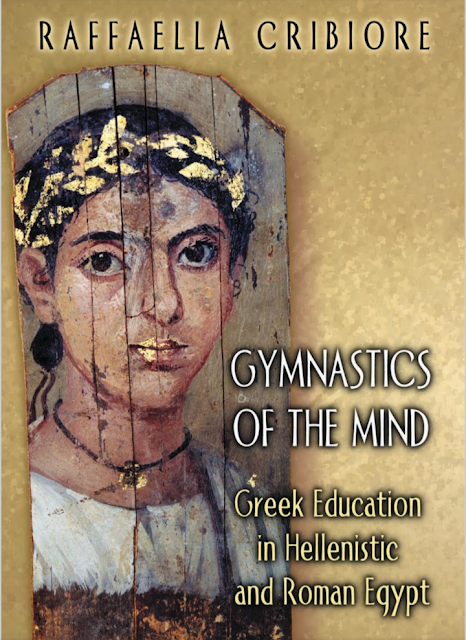Raffaella Cribiore is Professor at New York University and specializes in ancient Greco-Roman education, papyrology, and Greek rhetoric among other specialties. She has written several books on these topics, several of which are "must-reads" for anyone interested in understanding the wider culture in which early Christian book culture arose, particularly her works related to Greco-Roman education more broadly. Two of these books are;
"Writing, Teachers, and Students in Graeco-Roman Egypt" (Atlanta: Scholar's Press, 1996).
There were many interesting insights that Cribiore gave, but one that really resonated with my own research was her emphasis on the broadly defined "universality" of Greco-Roman education across the Roman Empire. Along with this, I list out several other interesting insight from the interview below;
1) Education from Hellenistic to the late antique period was remarkably uniform. Someone from Syria, to Egypt, to Rome would have been educated in a similar manner and with a similar body of literature.
2) Much more people attended at least the first tier of education than is often realized by scholars more broadly.
3) At least at the lowest levels, Education was available to girls as well as boys.
These details from the ancient world help to shine a light on early Christian reading and scribal culture. In an environment where a text was read out and copied within a social network, many Christians would be in a position to engage with these texts at various levels, and with some uniformity across the Empire. This would lead to a circumstance in which any "macrolevel" changes to a text in circulation would be noticed by the community engaging with these same texts. I make this argument in my JSNT article,
"Exposing Textual Corruption: Community as a Stabilizing Aspect in the Circulation of the New Testament writings during the Greco-Roman Era." JSNT 43.2 (December 2020): 266-298.


No comments:
Post a Comment